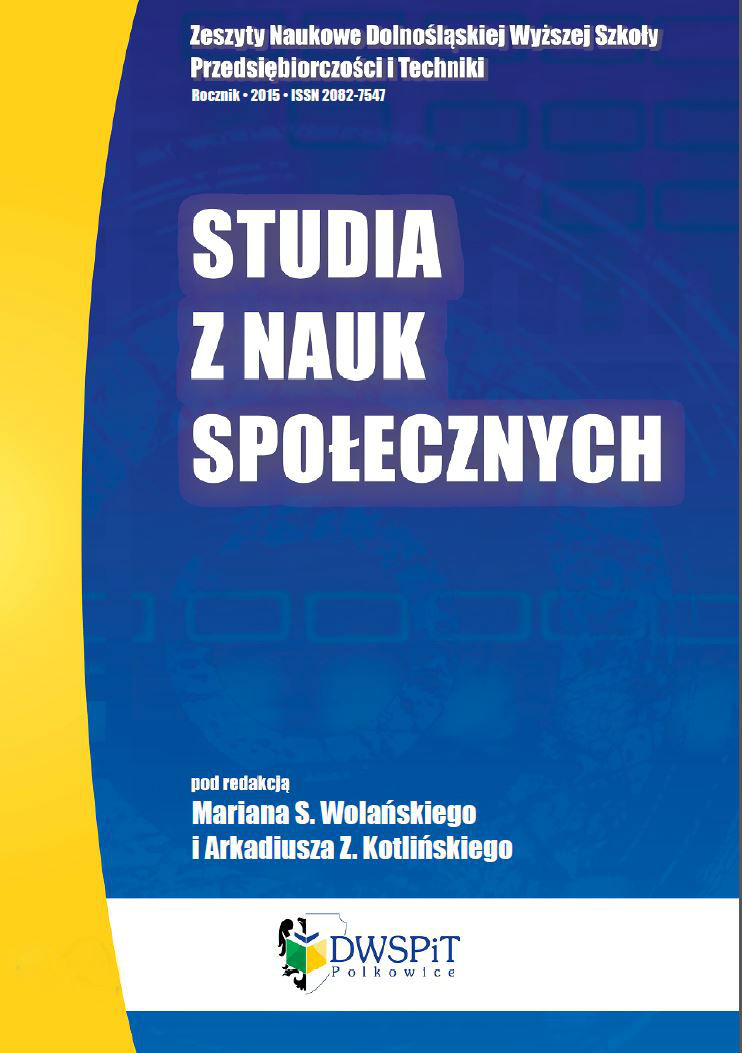
We kindly inform you that, as long as the subject affiliation of our 300.000+ articles is in progress, you might get unsufficient or no results on your third level or second level search. In this case, please broaden your search criteria.


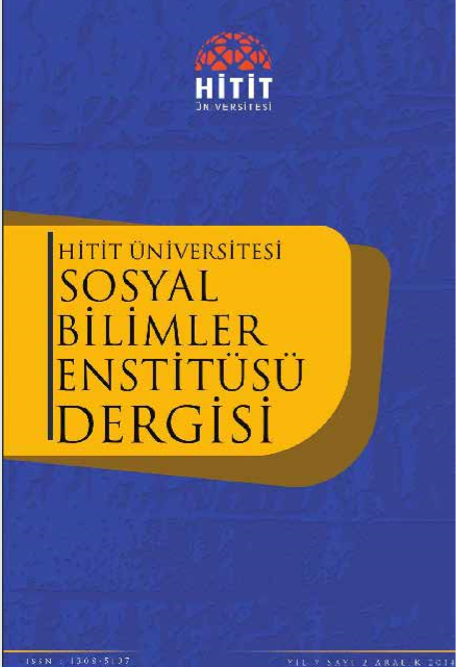
Marx has an important place among religion sociology theorists, although he did not directly write any papers that reported any analysis of religion. Instead, he expressed his thoughts on religion by criticizing the opinions by Hegel, Feuerbach, Bauer and English economy politicians. The main purpose of this study is to present a chronological compilation on religion concept, presented in his newspaper articles, papers and books. According to Marx, religion is both a kind of illusion and an ideology. This study reveals that the religion phenomenon keeps a broader place in his early papers, and that in a general sense, religion is understood as an illusion. In his later papers, religion analysis replaced with ideology analysis.
More...
Određenju odnosa sociologije, historijskog materijalizma i filozofije povijesti pojmovno prethodi određenje po čemu je taj odnos moguć, ukoliko je uopće moguć. Da bi se odredila pak ta mogućnost, odnosno nemogućnost , nužno je odrediti što je sociologija, što je historjski materijalizam, a što filozofija povijesti.
More...
U ovom radu raspravit ćemo o problemu Mannheimova odnosa prema Marxu i marksizmu, razvijenog u Mannheimovim ranijim radovima koji su se javili u vrijeme kada je on pokušao utemeljiti sociologiju znanja. Ograničavanje analize na Mannheimove ranije radove opravdano je zbog toga što on stavove prema Marxu i marksizmu u najvažnijim pitanjima bitno nije mijenjao za cijelog svog teorijskog stvaralaštva.
More...
Predmet ovoga kratkog izlaganja nisu novovjeke ideologije (što se u užem smislu najčešće podrazumijeva pod ideologijama). Isto tako, nećemo ovdje teorijski raspravljati o ona tri karakteristična elementa koji su prijeko potrebni da bi se neka ideologija oživotvorila (sistem ideja, organizacija i način provedbe).
More...
Axelos essaie de dépasser la métaphysique, Mais parler de l'abolition de »l’être«, du »fondement«, etc. du dépassement de l'home existant jusqu’à présent des schémas de la penése concernant le vrai, le bien et le beau. Logos, la nature et l'homme; parler du surpassement des contradiction entre l’homme et le monde, la pensée et le monde, le langage, la poésie etc., et le monde, la vérité et la réalité, les institutions et les actions à l’intérieur de l’histoire mondiale panétaire — tout cela ne signifiie pas encore dépa¬sser vraiment pensée métaphysique. Au contraire cela signifie légitimer la fin de la métaphysique et de l’histoire d’un monde, dont l’idée est la métaphysique même. La fin en tant que l'achèvement, culmination et complètement, trouble l'ordre traditionnel, mais ce désordre c’est justement sa »réajisation«. Le retour à l’essence de cet ordre troublé, de l’ordre et de la stabilité dans le trouble, ne peut être le jeu du monde de la métaphysique, du monde métaphysique, mais la mise en question de ce même jeu dans son individuation mundaine et métaphysique. Les conjoctions de n'importe qui avec n’importe quoi, bloquent justement la pensée de l’essence du jeu. Malgré toutes les réserves qu’il ait faites le jeu en tant qu’ultime est le jeu métaphysique, le jeu de la métaphysique; comme il le dit: le tournoiement et le retournement de »l’ère planétaire« en elle-même. Car, Axelos n’a même pas essayé de penser en partant du »planétaire« vers la source de sa épo- calité; au contraite, sa dialectique de deux-terms constitutifs l’opposition totale et de le contradiction de n’importe qui n’importe quoi maintient le cours, ensevelissant la source. Dans son essence, elle n’est rien d’autre que l’anciene opposition et la contradiction entre la forme et le contenu, le »monde« et les »grandes puissances«, les »forces fondamentales«, l’essence et le phénomène (»jeu« et »jeux«), entre la partie et la totalité, l’extérieur et l’intérieur, la fondement et le fondé, la cause et la conséquence, entre la force et la manifestation, l’au-dela et l’en-deça, la réflexion en soi même et la réflexion en autrui, la puissance et l’acte, l'essence et l’existence, letre et le devenir, l’être et la pensée; entre l’être et le devoir, l’être le l'apparence etc. c’est seulement dans une telle opposition et un tel chassé-croisé que le jeu reste le jeu, c’est-à-dire lui-même, et ainsi la question de l’essence du jeu ne se pose pas. Cette pensée-action pensée-langage, pensée- poésie dans laquelle l’un devient l’autre, le second le premier, de sorte que les deux se détruisent et de nouveau se rétablissent, la métaphysique se re-toume, et c’est justement dans ce re-toumement qu’elle reste en vigueur. La pensée d’Axelos correspond vraiment à l’epoque du déplacement perpé¬tuel, du changement, du dépassement, du surpassement, de l’abolition et du rétablissement de la totalisation et de la fragmentation. Elle est proche de la pensée nietzschéenne tout en la formalisant, en évitant les conséquences, en répétant jusqu’à la monotonie dans le jeu d’une note unique: le trouble général, et par conséquent le renoncement à un sens même provi-soire, la consolidation dans le nonsens. A travers Nietzsche, sans en avoir la profondeur, Axelos comprend Héraclite bien qu’un abime les sépare, malgré le penchant Nietzschéen de voir dans Héraclite un penseur congénère, métaphysiquement justifié, car la fin en quelque manière revient au commencement, en s'éloignant de lui. A travers Fink, mais sans avoir l’acribie et la discipline phénoménologique de ses formulations prudentes, il comprend (ou il ne comprend pas) Heidegger, ni son rapport avec Nietzsche et Heraclite. Axelos est postmétaphysicien, et comme tel, appartient a la pensée métaphysique, ne l’avoir martrisée qu’en apparence. Pour que »l’ère planétaire«, l’époque de la technique dans son essence soit vraiment pensée et acceptée par la pensée, il faudrait comprendre Nietschc d’une maniéré plus adéquate et avant tout, Hegel et Marx qui, en dépassant l’abstraction de la réflexion rationnelle à laquelle appartient la dialectique de deux termes constitutifs d’Axelos, par la dialectique articulée spéculativement (de trois termes constitutifs), pensant la totalité de ce monde, chacun à sa manière: l’un, philosophe du travail, la pensée sous la forme d'une notion concrète c’est-à-dire absolue, l'autra, réalisateur de la philosophie, à travers la pratique du travail à laquelle corespond la pensée-devenir de la technologie totale (scientifique). Au lieu de la pensée de l’époque, Axelos — et c’est son acte métaphysique — donne une revue monotone du »mouvement planétaire«. Une chose est évidente dans son oeuvre: les proportions du devenir de l'époque. Axelos dira-t-il, en principe, dans son livre annoncé »Le jeu du monde — Les fragments de la totalité« un peu plus que dans »Vers la pensée planétaire« et dans »Einführung in das künftige Denken« — nous en doutons. Partant de sa thèse fondamentale il ne peut qu’élargir et approfondir la desription de la pensée planétaire ou, pour ainsi dire, la perfectionner »techniquement«. Mais à cause de la voie choisie (la méthode choisie) il ne pourra pas mettre en question l’essence du jeu.
More...
The author researches the system of jurisdiction in the bourgeois society in consideration of free will as a foundation of the whole philosophy of law. Analysis shows that Hegel: a) the whole sphere of jurisdiction problematized inside of the system of necessities, by what the undoubtedly opened space for Marx’s thematism of law. The whole system of jurisdiction has its own dignity only in relation to the system of special interests in which the fundamental aspect of the production of the bourgeois society develops. Marx's claim for the abrogation of private property and also the whole system of jurisdiction presupposes the possibility of the complete rationalization of the material production: b) the space of freedom which opens in reflexion, by the immanence of reflexion itself, leads to the complenon of freedom by existing. Therefore the constitutive moment of freedom becomes the whole bourgeois society. Marx’s claim for the abrogation of philosophy means realization of philosophy, i. e. freedom in the directness of »material production«. The author interprets these moments trying to turn round freedom out of metaphysical sphere of necessity.
More...
Naše pitanje je: radi li se u Marxa, u nastojanju njegove misli i stremljenju djelovanja, vodenog njegovom mišlju, o prevladavanju - ozbiljenju Hegelove filozofije ili o prevladavanju filozofije kao filozofije?
More...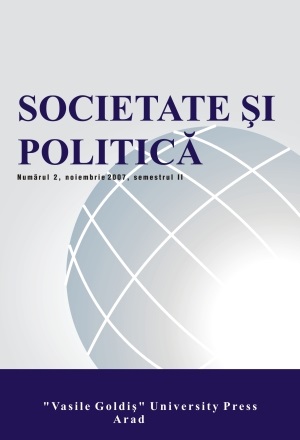

Boris Hessen, a Soviet philosopher and physicist active in the 1920s and 1930s, made significant contributions to the history of science, in particular the so-called externalist approach, and to the development of the Soviet epistemology, dialectical materialism (sometimes referred to as diamat). His contributions were noteworthy in particular in showing how general relativity and quantum mechanics were commensurate with diamat. Yet in the increasingly tense period of early Stalinism, seemingly abstruse debates in the philosophy of science became a matter of life and death. This article explores Hessen‘s work in the philosophy of physics, first providing a discussion of the institutional reception of relativity and quantum mechanics in the USSR, then turning to the discussions of physicists, philosophers and Stalinist ideologues, with the latter arguing that the epistemological implications of the so-called new physics. The outcome of these debates led to the purging of many specialists who were accused of being anti-Soviet – and to the arrest and execution of Hessen in 1937.
More...
This article is based on a joint endeavor. The first part introduces Hessen‘s theses and reconstructs their reception from the 1930s to the most contemporary research in Science and Technology Studies in an attempt to understand how and why Hessen‘s work has been recognized as a ―classic‖ in various disciplinary fields and contexts.2 The second part frames Hessen‘s ideas within the context of the early establishment of dialectical materialism, arguing for the proximity of his thought to the positions of the Russian Machists, in particular, Alexander A. Bogdanov. The reception of Hessen‘s theses clearly shows how his work has been at the center of symbolic negotiations and historiographical re-interpretations. His consecration as a ―precursor‖ of both externalism and the contemporary field of STS shows how it is necessary to reinterpret Hessen‘s theses within the context of the Soviet debates of his day. The paper draws the conclusion that the connection between Hessen and Russian Machism is consistent with the international reception of his work as it emerges in the historiography of science studies. Furthermore, it allows for a way to approach Hessen‘s contribution under a new light in the present.
More...
The following is a translation of Boris Hessen‟s «Предисловие к статьям А. Эйнштейна и Дж. Дж. Томсона», which was published in the Soviet Journal, Под знаменем марксизма. 1 The paper was an introduction to the Russian translations of Albert Einstein‟s „Newtons Mechanik und ihr Einfluß auf die Gestaltung der theoretischen Physik“,2 J.J. Thomson‟s “Newton‟s Work in Physics”3 and Horace Lamb‟s “Newton‟s Work in Mechanics”, all of which were written in commemoration of the bicentennial of Sir Isaac Newton‟s death. 4 Hessen maintains that the resurgent interest in Newton in the early 20th century was not only due to the bicentennial, but to the unwillingness of many theorists to accept the significance of the ensuing crisis within physics. He contends that this crisis was the sign that the Newtonian paradigm was breaking down and giving way to something new. Quantum mechanics, for Hessen, marked one aspect of the way forward as it made a qualitative break from Newtonian physics in the same way that the latter had been from Scholastic Aristotelian physics some centuries before. He also argues that quantum mechanics alone could not solve every aspect of the crisis as it required a supplement in Marxist dialectical/historical materialism. This paper is a marked contrast to Hessen‟s later, and better-known, work on Newton, “The Social and Economic Roots of Newton‟s Principia” from 1931. Where in 1927, he appears to defend a position more akin to the so-called „internalist‟ approach to the historiography of natural science, in 1931, he is generally considered to have defended an „externalist‟ approach.5 We hope that this new translation will stimulate discussion about the overall consistency of Hessen‟s thought as well as encourage new assessments of his contribution to the historiography of natural science.
More...
Le dialogue conduit avec les croyants des autres religions et les athées devient après le Vatican II un nouveau moyen de l’ Église Catholique pour réaliser les decisions de ce dernier et représente le nouveau style de son travail.
More...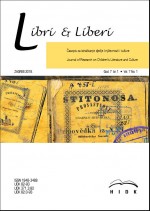
Russell Banks’s Rule of the Bone (1995) is a rare instance of a contemporary socially engaged American novel of development and maturation that rests, as this paper argues, on a systemic analysis of post-industrial Western reality and contemporary forms of Western-led imperialism. Grasping this reality and not coming to terms with it constitutes an essential part of the adolescent’s trajectory of growth and maturation. Rule of the Bone is America’s post-industrial working-class novel of maturation, the understanding of which lies at the intersection of Marxist and postcolonial theory. The novel addresses these complex social issues on a more basic but still insightful level accessible to teenagers and at the same time on a more intricate level that easily engages a more informed adult readership. In this sense, Rule of the Bone stands for what can be termed a crossover novel. Targeted primarily at an adult readership, it can prove to be of huge benefit to adolescents seeking to break out of the generic confines of contemporary, mainstream adolescent literature.
More...
Mada problemi organizacije povremeno stoje na istaknutom mjestu u borbi mišljenja — na primjer kada se diskutiralo o uslovima pristupanja — oni spadaiu u teorijski najmanje obrađena pitanja.
More...
Mađarski mislilac György Lukács poznat je našoj kulturnoj javnosti najviše po svojim estetičkim studijama, manje (s izuzetkom knjige »Mladi Hegel«) po općim filozofskim pogledima, a veoma malo po svojim političkim idejama. Predstava o Lukácsu kao estetičara nije pogrešna, iako izbor njevovih prijevoda na naš jezik nije bio uvijek najsretniji. Počevši od 1908. godine kada se na mađarskom pojavilo njegovo opsežno djelo »Razvitak moderne drame«. György Lukács je pretežni dio svog velikog opusa posvetio problemima umjetnosti.
More...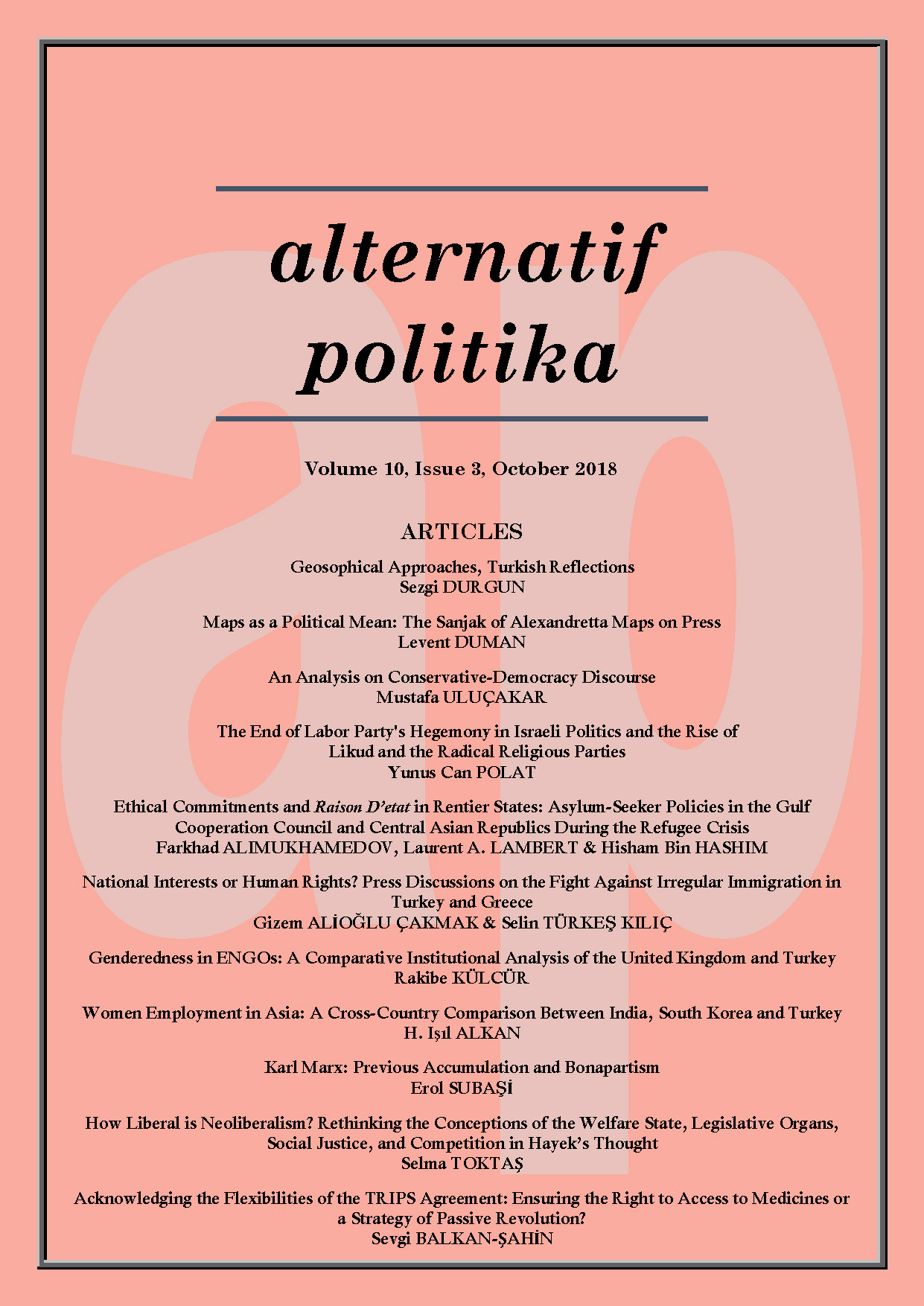
Marx’s analysis of capitalism is criticized for not taking the processes of the coercion into consideration. In this regard, Marx’s account of capitalism is associated with the “thesis of industrial society” according to which the rise of industry and the propagation of capitalistic relations would end the wars and bring peace to the Humanity. The study has three interrelated arguments. First is that the confusion about the role of coercion in Marx’s thought results from the misunderstanding of the Marx’s method. When Marx moves from the abstract models or mechanisms into the empirical facts, he shows that capitalism cannot exist without coercion. Second is that a non-economist, socio-political and empirical (re)reading of capitalism would reveal the dimension of coercion which is inherent to capitalism. The concepts of previous accumulation in Capital and Bonapartism in 18 Brumaire reveal that the liberal social order is not reproduced merely by and within the economic domain. Third, a capitalist social formation is created by the complex interaction of economic, political, social, ideological, cultural moments.
More...
With this article we continue to mark 150th anniversary of the publication of the first volume of Marx’s Capital. Author deals with the most important moment of the reception of this book in the previous period. The article covers a period of 150 years of interpretation of Capital within so called marxism, but also deals with the most important critical views on Marx’s taught. Author also deals with the history of reception of this book and marxist taught in general in former Yugoslavia. The central point of the article is reception and interpretation of Marx’s theory of value and dialectical method. This part of article deals with marxist reception of Marx’s taught since publishing of the first volume of Capital untill the 60’s of the 20th century.
More...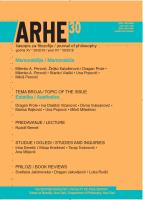
With this article, we continue to marks 150th anniversary of the publication of the first volume of Marx’s Capital. Author deals with the most important moment of the reception of this book in the previous period. The article covers a period of 150 years of interpretation of Capital within so-called Marxism, but also deals with the most important critical views on Marx’s taught. Author also deals with the history of reception of this book and Marxist taught in general in former Yugoslavia. The central point of the article is reception and interpretation of Marx’s theory of value and dialectical method. In this part of article we deal with modern Marxist reception of Marx’s taught from the 60’s of the 20th century to the present, as well as the history of Marxist reception of Marx’s taught in the Yugoslav language area, but also a review of the most prominent critique of the Marx’s critique of the political economy in economics and social sciences.
More...